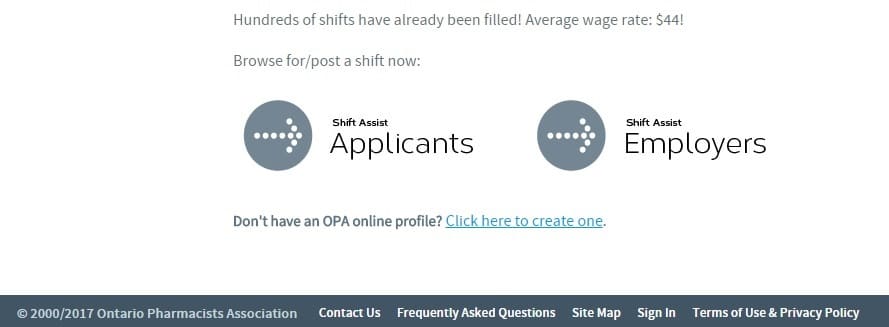Acting as a locum – career independence or financial roller coaster?
Which would you choose between the following two scenarios?
- Having the freedom to pick how much and how often you work, but with no guarantee that regular hours will always be available; or,
- Working long hours, sometimes on holidays or without a break, but knowing that you are going to receive a steady flow of income
If the first option is more attractive to you, then acting as a pharmacist in a locum capacity is something you should strongly be considering, if you aren’t already in that role.
There are a number of locum characteristics that should be kept in mind in order to help determine the ideal way to protect your best interests and help maximize retained earnings.
Let’s dive into why pharmacists choose the locum life, including 3 tips for being a successful locum.
Why Work as a Locum Pharmacist?

Locums are self-employed members of the workforce who contract themselves out to pharmacies, thus allowing for a great deal of flexibility in when and where hours are worked.
The term is often used interchangeably with relief pharmacist.
Many pharmacists view locum positions as an opportunity to “test the waters” by inserting themselves into different work environments and exposing themselves to a variety of medicines and practices.
This allows them to build a well-rounded resume with different levels of experience, which can then be used for opening other opportunities or deciding to settle down in a permanent position within an area of practice that they know they will enjoy.
Of course, while this sounds like an attractive prospect, it relies on there being a consistent source of hours to choose from, which may not always be the case.
There are even “retired” pharmacists that become locums because they are bored sitting at home all day doing nothing.
Locum jobs can come available for a variety of reasons, such as maternity leave, holiday hours, unexpected staff turnover, or relief situations such as when a regular pharmacist calls in sick.
In each of these examples, the length of time that a locum could be required may vary from a single shift to regular work over numerous months. Regardless, locum work is temporary work.
While it is very possible that pharmacists acting in this capacity can experience periods of time when there are plenty of opportunities to choose from, they also run the risks of being faced with long stretches of down-time or very intermittent work.
Here are 3 tips for being a successful locum.
Get Comfortable with Negotiating Contracts

Determine your own worth and identify what your minimum standards are because the wage rate for locum jobs has been trending downwards in recent years.
We have seen job ads in Ontario paying as little as $28 per hour.
Make sure both parties are in complete understanding of each other’s expectations before making a commitment or entering into an agreement.
Even for casual hours, there is no harm expressing your desired terms.
And when possible, try to have a guaranteed minimum number of hours stated.
This can take the form of a minimum number of hours per week/month, or a guaranteed shift length whenever you are on site. That way, even if hours are low, you know that you will be getting at least some regular income.
A great rule of thumb is to have a lawyer draft a generic contract for you which could be modified to be used from job to job. This will minimize legal and/or liability risks.
Be Organized and on Time
One of the biggest complaints from pharmacy managers and owners is that locums are not on time.

To be a successful locum, you must be organized and always plan where you are going in advance.
This means planning ahead and get bookings as far in advance as possible.
Need help getting bookings? There are locum/relief agencies that charge a commission if you are matched.
Luckily, the Ontario Pharmacist Association has a staffing agency called Shift Assist that matches you at no cost to you or the hiring pharmacy. That’s a huge win, especially since the average wage rate is about $44 per hour.

Keep your calendar up-to-date with bookings to make sure that you don’t double book yourself. The last thing you want to do is to have to cancel a booking.
And on your first day, be on-time and look presentable.
Be proactive and get familiar with how the pharmacy does the little things. The quicker you becoming familiar with the pharmacy’s way of doing things, the more likely you can secure future bookings.
Get an Accountant and Proper Tax Planning
Being a locum means you are self-employed, which means there are several business-related expenses that you are entitled to claim.
For starters, setup a home office.
Common expenses that you can write-off (fully or a portion of) as business expenses include but not limited to:
- Household utility expenses (hydro, water, internet, cable)
- Auto expenses (car payment, insurance, maintenance)
- Travel expenses
- Telephone expenses
- Postage, printing, stationary
- Registration fees
It is your responsibility for keeping accurate work records and submitting all tax information within proper timelines. This is the boring part.

Fortunately, an accountant can handle all of this for you, especially since finance is not a strong suit for many pharmacists.
But it is important to find an accountant that will not just handle your record keeping and do your tax returns but also offers tax planning.
Incorporation is a big tax planning opportunity for locums. Being incorporated or not has a huge impact on how your income will be taxed, as corporate tax rates are generally lower than personal income tax rates.
Corporations have options available to them such as income/dividend splitting or tax sharing, which are ways some people can increase their net income.
Incorporating can also provide an opportunity to store or defer income during times of plentiful work to draw on when hours might be lean.
However, becoming incorporated is not always right for everyone.
Combined income from all job sources as well as overhead costs associated with being a pharmacy locum (dues/fees, mobile/home office, accounting/billing services, liability/health insurance, etc.) will be big factors as to whether it is right, or the right time, for you.
Ultimately, a proactive accountant and legal specialist can help make that determination.
Conclusion
While locum positions in pharmacies can provide freedom for those pharmacists yearning to be self-employed without having to setup their own brick-and-mortar operation, career independence comes with a price.
Although moving from location to location may be exciting for some, the threat of not having regular income can be a fearful prospect.
But with some due diligence, attention to detail, and a little professional guidance, locums can lessen the effects of the peaks and valleys between jobs, making the roller coaster an exciting ride and not a scary one.
Do you currently act as a pharmacy locum? What are your favorite aspects of acting in this capacity? What are some of your frustrations?

Ryan Carson
BKin, LL.B | Lawyer
Ryan Carson, BKin, LL.B., practices Real Estate Law, Corporate & Business Law, Wills & Estate Administration, and Intellectual Property Law. Ryan is a registered trademark agent.
Ryan’s goal is to help you in various legal aspects of your Pharmacy, including but not limited to: drafting shareholder agreements, assisting in the sale and purchase of your Pharmacy, and drafting Wills and Powers of Attorney.
Website: http://www.breenlaw.ca/
- What happens if you die without a personal Will? - February 2, 2018
- Matters of Life and Death: 5 Estate Planning Tips for Pharmacy Owners - October 25, 2017
- Consider a Career as a Locum Pharmacist - July 24, 2017


